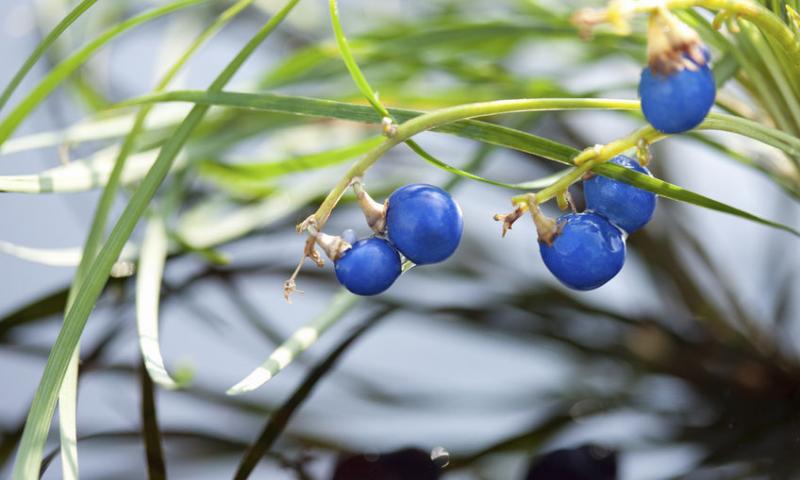 />
/>
ENGLISH NAME: Mondo Grass
COMMON NAME: Ophiopogon
CHINESE NAME: Mai Dong
LATIN NAME: Ophiopogon japonicus
ORIGIN: Japan
HABITAT: Mai Dong grows on the slopes of the mountains and at the foot of the Himalayas, in the Philippines and Japan. In some regions of China can be found at the height of 2800 meters. The plant prefers slopes of mountains, hills, forests, grassy thickets, bamboo groves. This plant loves shady and moist places. Ophiopogon japonicus can grow in open ground, often as a border plant.
BOTANICAL INFORMATION:
Mondo Grass or Japanese lily of the valley (lat. Ophiopogon japonicus) is a perennial tuberous-root plant, one of the species of the genus Ophiopogon. Belongs to the Liliaceae family. There are approximately 65 species in the genus. Many eastern countries use Mai Dong in their traditional medicine.
Ophiopogon japonicus is a tuberous-root plant with a strongly shortened stem, fibrous roots, with tuberous thickenings. The leaves are narrowly linear, up to 35 cm long, collected in thick rosette. The plant has smooth, dark green leaves. Elongated thin stolons-shoots are formed during the process of growth. This shoots сan grow over large areas. Mondo Grass blooms from July to September. During the flowering period, there appear a short peduncle grows, on which 15-20 buds are formed. The length of the peduncle is usually shorter than the length of the leaves of the plant. The flowers are small, can be pink or purple in color. The fruits of Mai Dong are spherical berries, blue-black in color. Small seeds develop inside the fruit. The plant propagates by vegetative division of the rhizome, less often - by seeds.
CHEMICAL COMPOSITION:
The plant contains carbohydrates (arabinose, galactose, glucose), polysaccharides, sitosterol, ruscogenin, ophiopogonins (steroid saponins), terpene glycosides, isoflavonoids, vitamins B, C, A, D, trace elements (calcium, copper, zinc, iron, chromium, sodium, etc.).
INTERESTING FACTS:
Mai Dong has many synonyms and popular names. In some sources this species is found under the Latin name Convallaria japonica (in translation - Japanese lily of the valley, as the similarity of the flowers of lily of the valley and Mondo Grass is obvious).
The Latin name of the genus ophiopogon comes from the Greek. ophis - “snake” and pogon - “beard.
*This article is for informational purposes only. We suggest consulting a physician before using these or any other herbal supplements.
